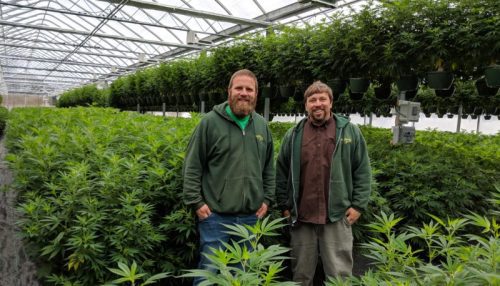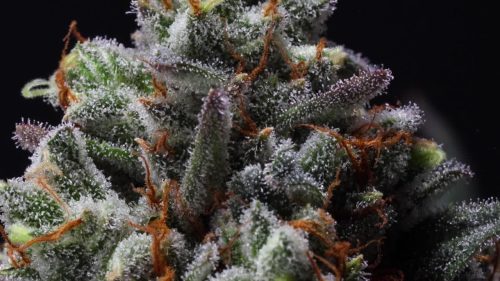The cannabis movement in the United States has experienced dramatic shifts over the past decade. States have moved from near-universal prohibition to a varied patchwork of medical programs, adult-use markets, decriminalization statutes, hemp/derivative frameworks and regulatory experiments. Yet, for cannabis in the South, reform has moved more slowly, often methodically, shaped by deep-rooted political, cultural and enforcement traditions.
With growing public support, economic interests and regional cues, the South now stands at the cusp of a meaningful policy evolution.
In this feature, we take a comprehensive look at how each Southern state, by traditional American geography and culture, approaches cannabis: where medical access stands, whether adult use is legal (or under serious consideration), what the possession and home-grow rules look like, what hemp/derivative regulatory questions are emerging, and what trends appear likely ahead. This is our first ever official guide for cannabis in the South.
The states covered: Texas, Oklahoma, Arkansas, Louisiana, Mississippi, Alabama, Georgia, Florida, South Carolina, North Carolina, Tennessee, Kentucky, Virginia, West Virginia and Missouri.
By offering a practical, state-by-state breakdown, this piece is designed to help patients, entrepreneurs, policymakers and curious citizens understand what cannabis policy really looks like in the South, not just in headlines, but in rules, limits and regulatory realities.
Cannabis in The South: A United States Breakdown
Cannabis in Texas
In Texas, full adult-use (recreational) remains off the table; despite its size and economic weight, reform here has been cautious. The state’s medical program—known as the Compassionate Use Program (TCUP)—is highly restricted: historically limited to oils with very low THC, no smoking permitted, and a narrow list of qualifying conditions. In 2025 the legislature passed HB 46, revising the low-THC rules to allow up to 10 mg THC per dose for qualifying patients (effective Sept 1, 2025) rather than the prior “1 % by weight” standard. Smoking is still banned.
Meanwhile, Texas has also moved to regulate hemp and cannabinoid derivatives: in 2025 the legislature enacted a ban on cannabinoid vape products (SB 2024), reflecting growing regulatory tension around delta-8, delta-9 from hemp and other derivative markets.
For non-medical users, possession of small amounts remains a misdemeanor (typically up to 2 oz under Class B misdemeanor standards) with possible jail time and fines. The combination of a large population, economic scale and proximity to reforming neighbors (e.g., New Mexico, Oklahoma) gives Texas the potential to shift dramatically, but for now the status quo is incremental: limited medical access, no adult-use sales, and significant regulatory caution.
Cannabis in Oklahoma
Oklahoma presents an interesting case: while adult-use remains illegal following the rejection of State Question 820 in March 2023, the state’s medical cannabis program is among the most liberal in the region. Voters approved medical cannabis in 2018 and the rules allow a broad set of products, home cultivation for medical patients (up to 6 mature + 6 immature plants) and possession limits (for example ~3 oz on one’s person, ~8 oz at home) for medical cardholders.
However, regulatory concerns have been mounting: high dispensary density, cross-state traffic (especially from Texas), product-supply and quality monitoring issues. The state has imposed a moratorium on new business licenses until August 1, 2026, partly to stabilize the industry.
While Oklahoma has not legalized adult use, it is serving as a regional hub for medical cannabis and may act as a pressure point for neighboring states. The next steps include refining licensing, improving regulatory oversight, controlling diversion and possibly revisiting adult-use initiatives.
Cannabis in Arkansas
Arkansas legalized medical cannabis in 2016 via a constitutional amendment and the program has matured with dozens of dispensaries and product types. Adult-use, however, remains illegal: a 2022 ballot measure (Issue 4) failed to secure voter approval. The medical program offers real access for patients, though the market is more modest compared to large states, and regulatory caution remains strong.
Public-policy watchers in Arkansas are considering expansion of qualifying conditions, improved patient access (e.g., delivery rules) and possible decriminalization. But the adult-use market still appears some way off. For entrepreneurs and patients alike, Arkansas represents a “medical-first” Southern model: established but still limited.
Cannabis in Louisiana
In Louisiana, medical cannabis has been legal since 2015, and in recent years the regulations have been expanded (including smokable flower under certain conditions beginning in 2022). Adult recreational use remains prohibited. Some jurisdictions (local parishes/cities) have decriminalized small possession (e.g., up to 14 g) with fines instead of jail. The state’s medical program allows patients to purchase up to ~2.5 oz of flower per 14 days (under current rules) and is administered through the Louisiana Department of Health.
The Gulf-South economic structure (tourism, hospitality), enforcement heritage and state political climate mean that any shift to adult-use would carry significant debate over tax design, licensing and local-control opt-outs. In the short term, watchers should look for regulatory refinements in the medical system (product safety, home-grow privileges for medical patients) and local decriminalization momentum, with adult use likely a long-term possibility rather than immediate.
Cannabis in Mississippi
Mississippi is a state that long trailed its Southern peers in reform but made a major move when it passed the Mississippi Medical Cannabis Act (SB 2095) in February 2022. The medical program launched in early 2023 and allows qualifying patients to buy from licensed dispensaries. Adult recreational use remains illegal, but small-possession decriminalization is in place (for example, possession of ≤30 g may trigger only a fine).
The industry in Mississippi is still young; licensing, distribution, product-safety testing and patient registration are all ramping up. For patients this means access is improving but still evolving; for entrepreneurs, the nascent market presents opportunity along with regulatory risk. Because Mississippi is surrounded by states with varied cannabis statuses (Alabama, Louisiana, Arkansas, Tennessee), cross-border dynamics may increasingly shape policy debates.
Cannabis in Alabama
Alabama’s path has been among the most cautious in the region. The state legalized medical cannabis by statute in 2021 (SB 46) but the rollout has been delayed by licensing litigation and regulatory setup. Adult use remains illegal. In 2025 Alabama also passed House Bill 445, which significantly reshapes the state’s regulation of hemp-derived products: starting July 1, 2025, all smokable hemp products (including vapes) are banned; the bill also sets potency limits (10 mg THC per serving, 40 mg per container), licensing requirements for manufacturers/retailers, and imposes excise taxes and labeling mandates.
This highlights how in Alabama the hemp/derivative frontier is emerging even ahead of full adult-use reform. For patients, access is improving but still more restricted than in many states. For business, the regulatory climate is tightening. The broader takeaway: Alabama is moving carefully and regulators are setting firm guardrails before broader reform.
Cannabis in Georgia
In Georgia, cannabis remains illegal for adult recreational use. The state does offer a limited “low-THC oil” medical program: patients may access products with up to ~5% THC, and in-state dispensaries began opening in 2023 under the Georgia Access to Medical Cannabis Commission.
However, this remains far more limited than full medical-cannabis programs in other states (in terms of product types, smoking flower, home growing, etc.). Georgia remains in a transitional space: the fact that the program is new means growth is ongoing (new dispensary licenses, expanded product lines), but wider reform (adult use, home grow, higher-THC medicinal access) remains uphill politically.
For patients who previously had to cross state lines, the Georgia program represents real progress; but for entrepreneurs, the narrowness of the program means limited scale and conservative regulatory design.
Cannabis in Florida
Florida’s cannabis story is one of near-miss for adult use. The state legalized medical cannabis in 2016 (via Amendment 2, capturing ~72% of vote) and has since developed a robust medical-cannabis market. As of 2025, the state allows patients to purchase up to 2.5 oz of flower in a rolling 35-day period, with route-specific THC maximums (for inhalation, edibles, etc.). An adult-use constitutional amendment appeared on the 2024 ballot, achieved ~56% support but fell short of the 60% supermajority requirement.
This suggests adult use may be coming—but needs another campaign, stronger coalition or legislative change. The floridian market is already large, given population size, tourism and older demographics; this means that when adult-use does arrive, the economic impact could be significant. For now, patients have access, entrepreneurs operate under medical-only rules, and the adult-use effort remains in preparation.
Cannabis in South Carolina
South Carolina remains one of the more conservative states on cannabis reform. Adult recreational use is illegal, and the state currently does not have a comprehensive medical-cannabis program (only very limited CBD/low-THC access in narrow cases). Possession of small amounts is still a misdemeanor (for example up to 1 oz may lead to ~30 days in jail or fines).
Legislative bills have been introduced repeatedly (for example the South Carolina Compassionate Care Act) but none have passed both houses and been signed into law as of October 2025. For patients this means limited access; for entrepreneurs the business opportunity is minimal until law changes. That said, pressure may build as other Southern states reform, and local jurisdictions may start to examine decriminalization or low-THC expansions.
Cannabis in North Carolina
North Carolina is at a pivot point. As of 2025, the state has neither legalized adult recreational cannabis nor launched a full medical-cannabis program (though the state does allow some low-THC products in limited cases). Possession penalties remain: for example, up to 0.5 oz may be a class 3 misdemeanor (fine up to $200) but no guaranteed jail.
In June 2025, Governor Josh Stein established the State Advisory Council on Cannabis, tasked with recommending by 2026 a regulatory framework for medical and possibly adult use. The fact that this council now exists signals growing policy momentum. For citizens, that means change may be coming; for businesses, early planning is prudent (tracking licensing rules, etc.). But until law changes are passed, the status remains cautious.
Cannabis in Tennessee
Tennessee’s approach is among the strictest in the region. Adult recreational use is illegal and any possession (even small amounts) is a misdemeanor that may carry up to one year incarceration and a fine (e.g., for ≤½ oz). Medical access beyond CBD/low-THC products is not broadly legal.
The state is also wrestling with hemp-derived cannabinoids and how those fit into enforcement. For anyone considering business or use in Tennessee, the message is clear: the landscape remains very restrictive, and even small possession can carry serious consequences. Reform is possible, but there is no strong legislative path visible yet.
Cannabis in Kentucky
Kentucky is emerging from a long period of prohibition. In March 2023 the state passed SB 47, legalizing medical cannabis (effective January 1, 2025). Under the law, patients will be able to register, access dispensaries and use regulated cannabis products; interestingly, the law prohibits raw plant smoking, allowing only vaporization and other non-combustion forms. Adult recreational use remains illegal.
For patients and businesses, Kentucky is entering the ramp-up phase: licensing rules, dispensary networks and regulation details are being finalized. Until the system is fully live, access is limited; but by 2025 and 2026 the state will likely be active in the medical-cannabis space. The next question: when will Kentucky consider adult use or allow home grow? That remains open.
Cannabis in Virginia
Virginia occupies a unique spot among Southern states: it is one of the first in the region to allow adult-use possession and home cultivation, though commercial retail adult-use sales are not yet fully operational. Since July 1, 2021, adults 21+ in Virginia may possess up to 1 oz of cannabis and may cultivate up to 4 plants per household (within limits).
However, the legislature has not approved full regulation for retail adult-use sales, meaning that while legal to possess, there is as of yet no fully established “storefront” adult-use market. Meanwhile, the medical-cannabis program is fully operational. For patients and entrepreneurs, Virginia offers a bridge between “medical-only” states and full adult-use states—since the legal foundation is laid, but the commercial infrastructure is still being built. Social-equity, licensing and local-jurisdiction control issues are active in Virginia’s rollout.
Cannabis in West Virginia
In West Virginia, medical cannabis has been legal since July 2019 and the program continues to grow in terms of dispensaries and patient registrations. Adult recreational use remains illegal. West Virginia’s geographic and economic context (Appalachian region, rural population, coal legacy) means that cannabis policy is often linked to public-health, alternative-economy and regulatory-capacity questions.
For patients, the program offers meaningful access; for entrepreneurs, the market is smaller, more remote and may require creative strategies. The major question ahead: whether West Virginia will expand qualifying conditions, allow home grow for medical patients and eventually open the door to adult use or decriminalization.
Cannabis in Missouri
Missouri is the standout among Southern-region states for adult-use legalization. Voters approved Amendment 3 in November 2022, legalizing recreational cannabis for adults 21+; possession up to 3 oz is permitted, and home cultivation is allowed (with registration). The medical-cannabis program (Amendment 2, 2018) had already been operating.
Missouri now has a functioning adult-use market (retail sales began Feb 3, 2023) and is working through regulatory issues such as taxation (6% state + local taxes), licensing, social-equity, and local opt-out of retail.
For the South, Missouri offers a model of how adult use can succeed even in historically conservative states. Key issues ahead: controlling illicit markets, ensuring product safety/oversight, managing local taxation burdens and supporting equitable access.
Regional Summary and Takeaways for Cannabis in The South
Across the fifteen states examined, several clear patterns emerged when it comes to cannabis in the South:
The “medical first, adult use later” model dominates when discussing and researching cannabis in the South. Nearly all states with reform began with medical or low-THC programs before moving toward adult use (if at all).
Implementation and regulatory detail matter. Passing a law is only step one; licensing, product safety, home-grow rules, local zoning, taxation and social-equity measures often determine success or delay.
Political culture, enforcement legacy and local control remain strong forces. The South has deep traditions of law-and-order drug-policy, which means reform often proceeds cautiously, with compromises (THC caps, no smoking, narrow patient access).
Economic opportunity is significant — but so are restrictions. States face big decisions on tax rates, licensing structure, local opt-outs and cross-border flows. Some (like Missouri) are leaning into adult-use; others remain wary.
Hemp and “derivative” cannabinoids (delta-8/delta-9 from hemp, vapes, smokables) are emerging as major regulatory battlegrounds even before full adult use arrives. This is one of the major obstacles when it comes to hemp versus cannabis in the South.
The patchwork means cross-state dynamics matter. States with more liberal laws border those with stricter laws; this creates issues of diversion, tourism, enforcement and competitive disadvantage for the lacking structure of cannabis in the South.
Public opinion is shifting for cannabis in the South however. Recent ballot initiatives (Florida 2024) and new regulatory councils (North Carolina) show growing momentum — but legislative rules (supermajorities, no citizen initiatives) and political barriers still slow change.
For patients, businesses and policymakers of cannabis in the South, the message is clear: the tide of change is rising, but the details will make the difference.
Whether a state offers full access or continues in a conservative model depends heavily on regulatory design, social-equity framing, economic strategy and law-enforcement of cannabis in the South.
FAQ – What You Should Know About Cannabis in the South
Is cannabis legal at the federal level?
No. Under federal law, cannabis is a Schedule I controlled substance — meaning it is illegal for recreational use and even medical use lacks federal approval. However, federal enforcement action against individual compliance with state-law programs is limited.
What is the difference between “medical cannabis” and “adult use”?
“Medical cannabis” means a state allows cannabis for qualifying patients, typically under physician certification and registration. “Adult use” means any adult (usually 21+) may legally purchase/possess regulated cannabis, often including retail sales, without patient certification. Why it matters: medical programs are often more constrained (product types, home-grow restrictions, higher cost); adult use opens the broader consumer market.
Does legalization of adult use mean I can grow plants at home?
Not always. Home cultivation rules vary widely by state. For instance, in Virginia adults may grow up to 4 plants per household. But in many states that legalize adult use, home growing is either prohibited or limited by plant count or registration. Always check state law.
If a state legalizes adult use, does that mean all past offenses are cleared?
Not automatically. Some states include expungement or record‐clearing for past low-level cannabis convictions; others leave it up to separate legislation. It’s wise to review state-specific expungement rules when reform passes.
What about hemp and hemp-derived cannabinoids (delta-8, delta-9 from hemp)?
Hemp (federally defined as cannabis sativa with ≤0.3% Δ9-THC) was legalized in the 2018 Farm Bill. Many states allow hemp cultivation/sale. But products derived from hemp (like delta-8 THC, hemp-derived delta-9 THC, THCA, HHC) may fall into state regulatory gaps — especially in states lacking adult-use frameworks. Several Southern states (e.g., Alabama, Texas, Georgia) are actively legislating how to regulate these products.
Can I transport cannabis across state lines?
No — transporting cannabis across state lines remains illegal federally (interstate commerce), even if both states permit cannabis use. Many states also explicitly prohibit bringing in cannabis purchased in another state. Always check both origin and destination state law. Transporting cannabis in the South is definitely not a great idea.
What kind of taxes and local rules should I expect if I’m in a state with adult-use?
States with adult use typically levy excise and sales taxes on cannabis products, and allow local governments to “opt out” of retail licensing or impose additional zoning and fees. Licensing fees, business caps, social-equity license allocation, product-type rules and lab/testing requirements all vary by state. These details affect price, availability and business competition.
Are more Southern states poised to legalize adult use soon?
Yes—though the timing and model will differ. States such as Florida (near miss in 2024), North Carolina (council recommendations by 2026), Kentucky (medical from 2025), Louisiana or Mississippi are seen as potential reform candidates. But each faces its own legislative hurdles (supermajorities, local opt-outs, regulatory design) and political culture constraints.
The American South is not behind the cannabis reform curve, it is simply reforming on its own schedule, and with its own competitive dynamics. The region’s path reveals a blend of law-enforcement legacy, economic incentive, cultural shift and regulatory caution.
Patients and entrepreneurs alike would do well to track not just whether reform happens but how it is implemented: the difference between a restrictive medical-only system and a robust adult-use marketplace lies in details like home grow, retail licensing, product diversity, taxes and equity inclusion. Cannabis in the South will legalize at it’s own pace.
As the region moves forward, states that embrace thoughtful regulatory frameworks, incorporate social-equity provisions, maintain product-safety standards and engage local communities are likely to thrive.
For RespectMyRegion.com readers, whether from Houston, Atlanta, Jackson, Louisville or Richmond, the message about cannabis in the South is clear: keep an eye on your state’s regulatory timeline, know the rules (they vary dramatically!), and recognize that in the South, the future of cannabis is unfolding right now.
The future for cannabis in the South is exciting.
–
Pair your next smoke session with a Triple hemp THC seltzer or lemonade or a Happie hemp THC seltzer — use code RespectMyRegion20 at checkout for a discount on Happie products. Both deliver smooth, uplifting effects that enhance relaxation and complement your favorite terpenes.
Affiliate Disclaimer:
Some links in this article may be affiliate links. Respect My Region may earn a small commission if you purchase through them. The code “RespectMyRegion20” provides a discount on Happie products. All products are intended for adults 21+ and compliant with hemp and cannabis laws where applicable. Respect My Region does not sell or distribute THC or hemp-derived products directly.







